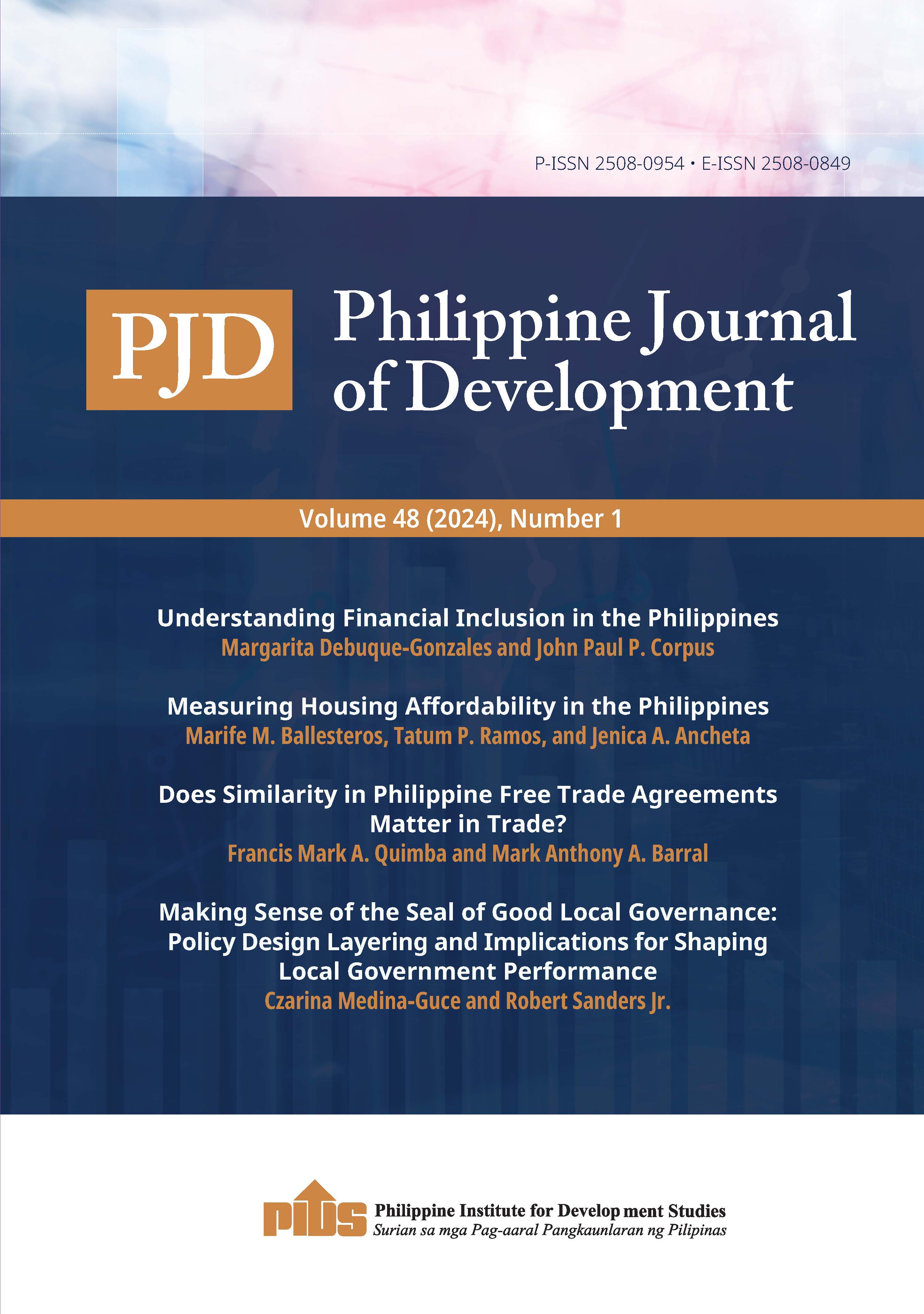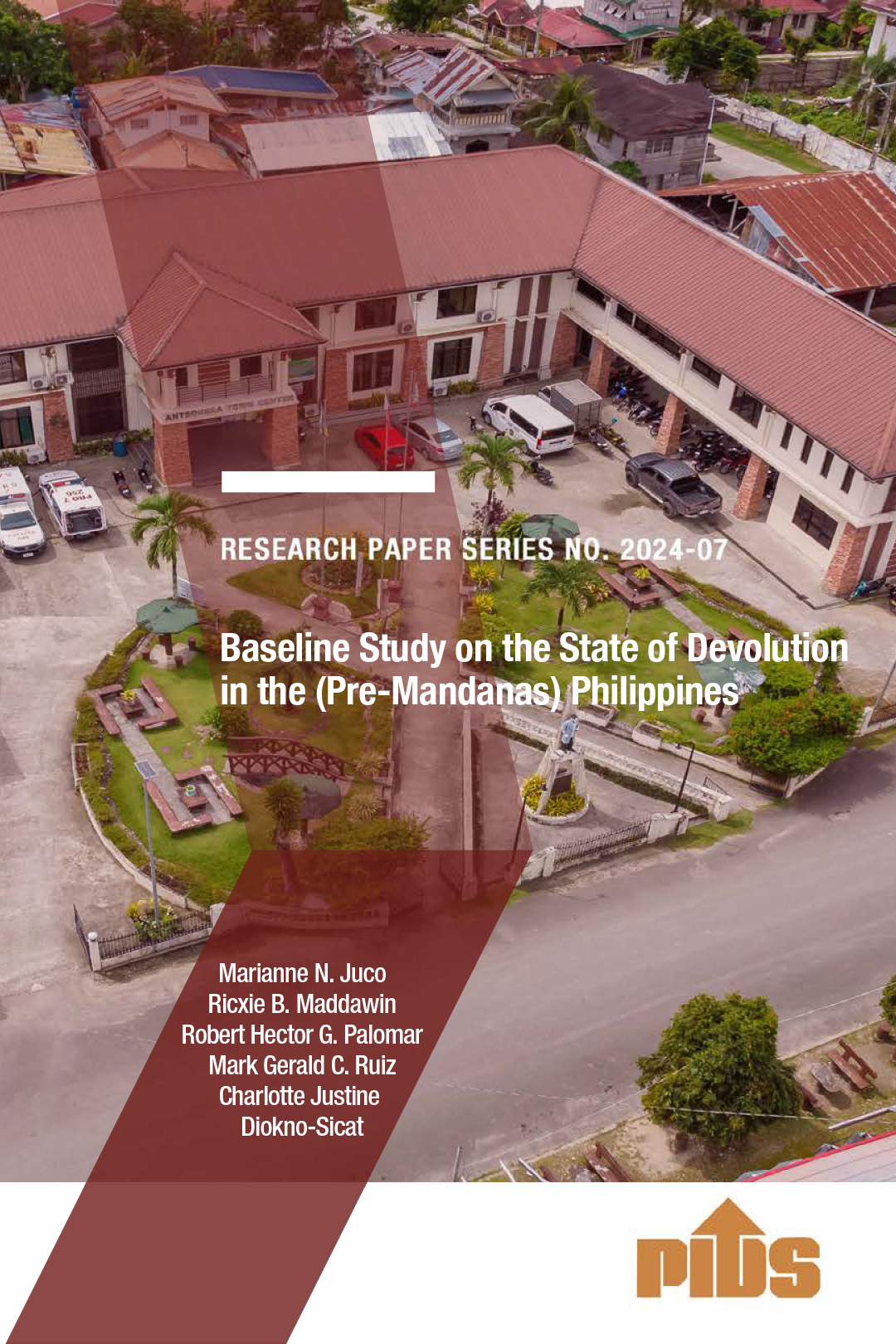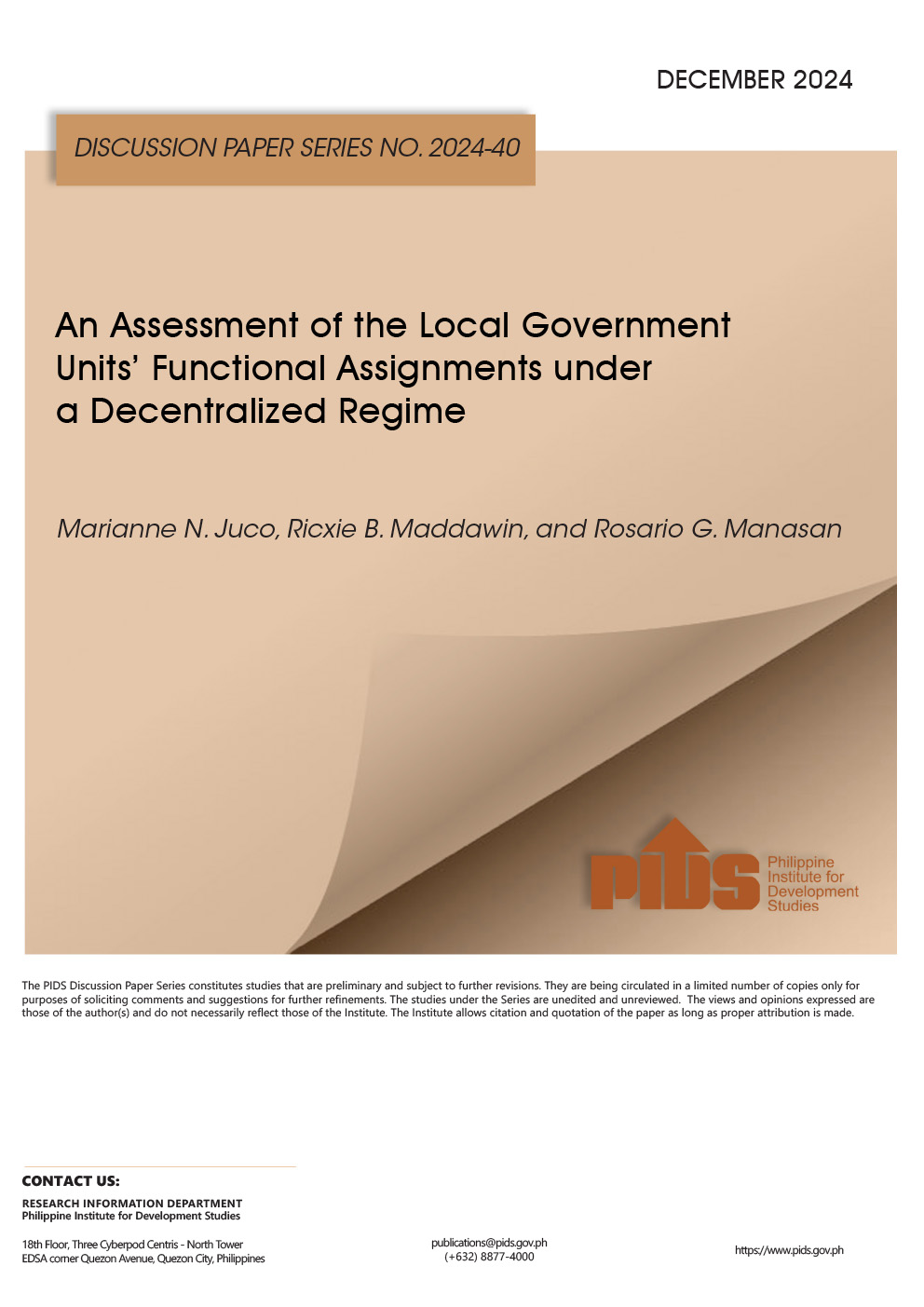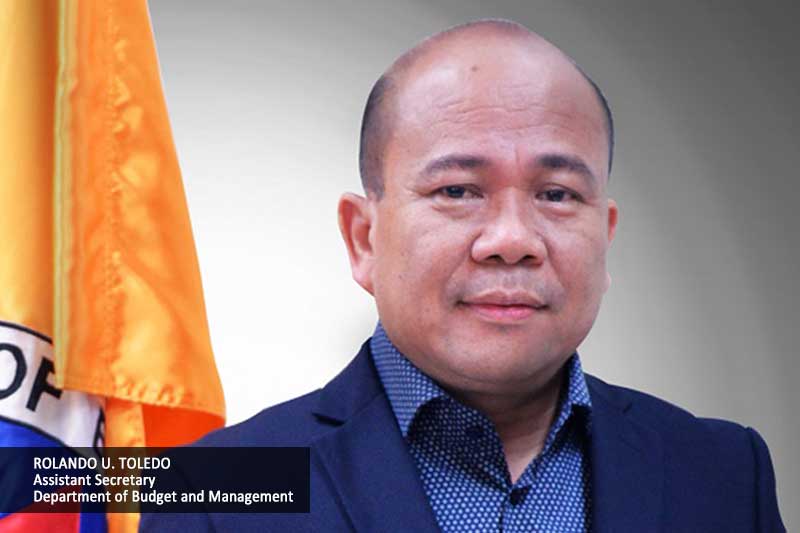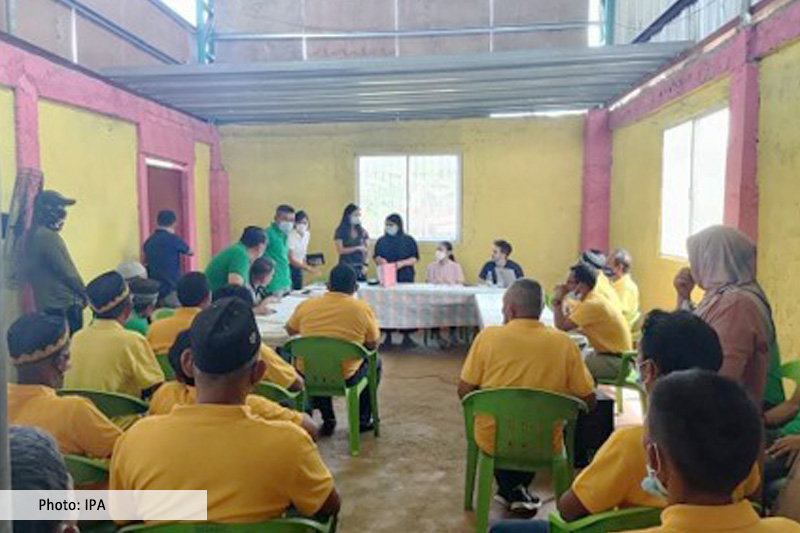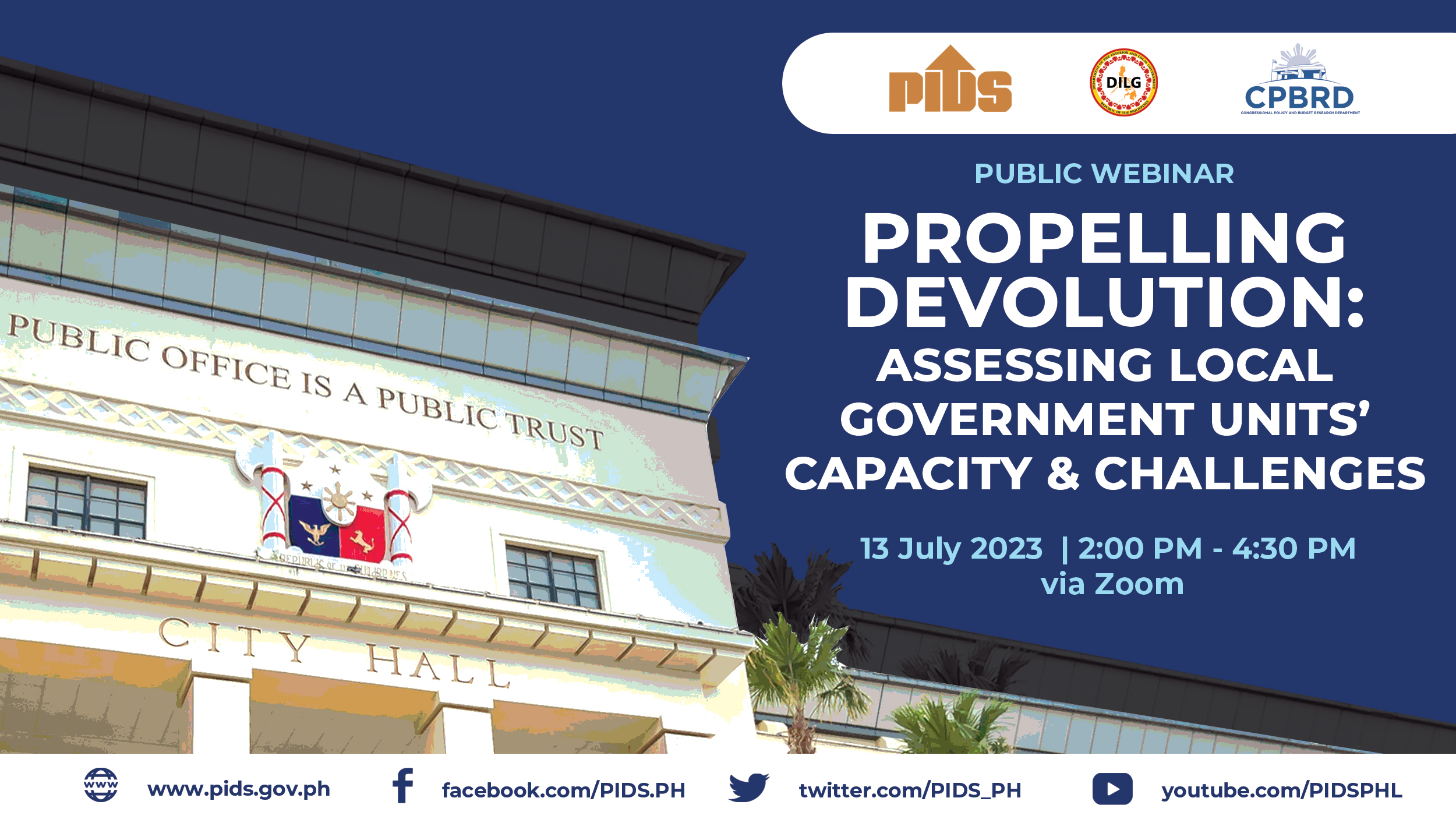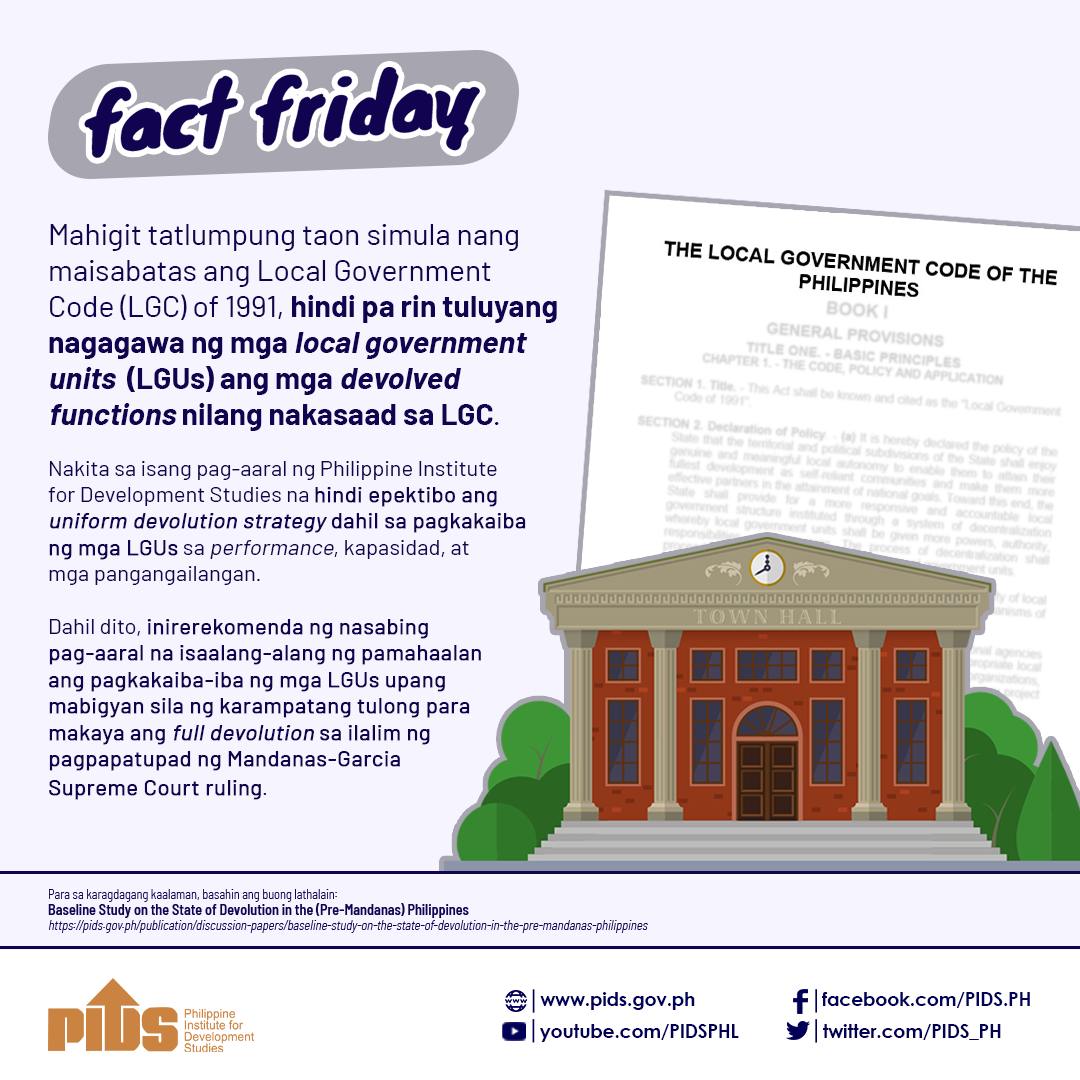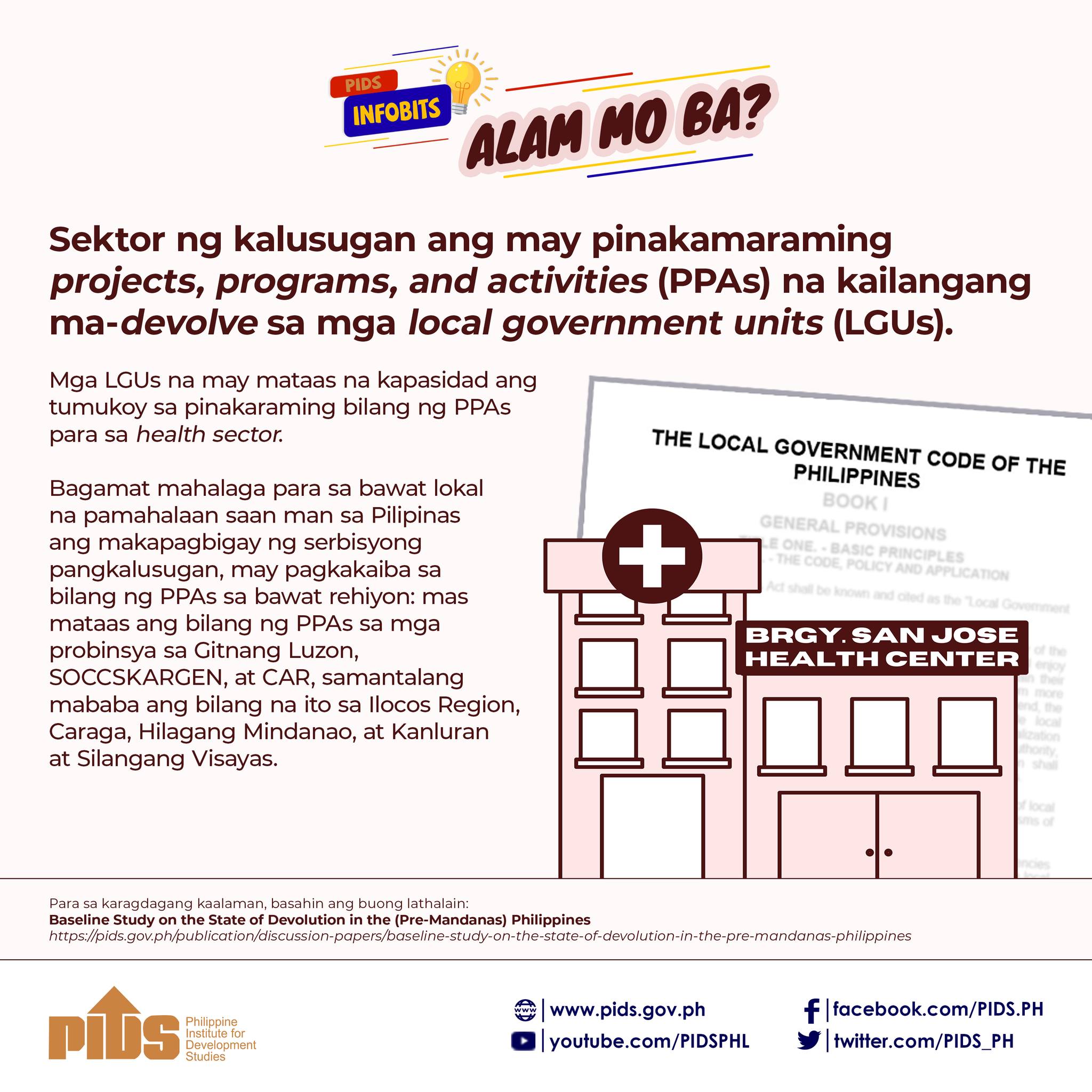
Adequate funding and capacity building, and close coordination between the local government units (LGUs) and the national government are essential for a successful full devolution, according to experts at a recent webinar organized by the Philippine Institute for Development Studies (PIDS) in partnership with the Department of the Interior and Local Government (DILG) and the Congressional Policy and Budget Research Department (CPBRD).
The webinar featured the study “Baseline Study on the State of Devolution in the (Pre-Mandanas) Philippines” by PIDS consultant Marianne Juco, Senior Research Specialists Ricxie Maddawin and Robert Hector Palomar, Research Analyst Mark Gerald Ruiz, and former Research Fellow Charlotte Justine Diokno-Sicat. It evaluated the LGUs’ devolution transition plans (DTPs) to establish a baseline of the current devolved functions and capacities.
"The study is useful in reviewing and determining challenges and opportunities for the LGUs as active and effective partners in pursuing national development. We can only achieve our goals if we develop and implement policies that reflect the realities in our LGUS,” said DILG Undersecretary for Local Government Marlo Iringan in his message.
Coauthors Juco and Maddawin presented the study to over 1,000 webinar participants from the government, academe, civil society, private sector, and the media.
“LGUs have varying needs and priorities, so decentralization may not be a one-size-fits-all [strategy], and an asymmetric approach may be beneficial. A mechanism for data collection can help the government evaluate the progress and effect of its decentralization efforts,” Juco said.
She revealed that none of the devolved functions are expected to be fully performed by end-2024, emphasizing the need for personnel training and monitoring tools, among others.
Webinar discussant and Department of Budget and Management Systems and Productivity Improvement Bureau Director John Aries Macaspac pointed out that capacity development interventions for LGUs are necessary to implement the full devolution successfully.
“The national government has a role in providing technical and material assistance to the less developed and persevering LGUs to facilitate local autonomy. Policies and guidelines for budget proposals should prioritize capacity- and competency-enhancing interventions for LGUs, including training, technical assistance, and additional financial support,” he said.
He added that strengthening the coordination between the LGUs and national government agencies will help “address [transition] difficulties and maximize the use of resources for smooth implementation”.
Beyond coordination, CPBRD Director-General Romulo Emmanuel Miral suggested fostering a harmonious relationship between the national government and LGUs.
“Autonomy alone does not guarantee improved governance and service delivery. National and subnational local governments must forge a harmonious relationship based on a clear division of responsibilities which, in turn, should be made operational by adequate funding, bureaucratic capacity, and use of credible, timely, relevant, and consistent performance indicators,” he explained.
House Committee on Local Government Chairperson and Negros Occidental Sixth District Representative Mercedes Alvarez stressed the importance of public participation in ensuring the success of devolution and creating partnerships between LGUs and academic institutions for data collection and research.
“It is important for the LGU officials and employees to be knowledgeable about their current functions, the functions that will be devolved, and the national tax allotment of their LGU. This can be done by conducting seminars to inform new barangay officials about filling out the necessary DTP forms and maximizing opportunities to collect baseline indicators,” she remarked.
Union of Local Authorities of the Philippines President and Quirino Governor Dakila Carlo Cua raised the importance of recognizing the LGUs’ unique needs and context and learning from the lessons of the health devolution in the 1990s.
“There is a need for a data-driven and scientific approach, where programs are implemented based on the data and unique circumstances of each LGU. By allowing LGUs to determine their path based on their local contexts, a more decentralized and responsive governance framework can be fostered, leading to more effective outcomes and better utilization of local resources,” he stated.
Watch the webinar at https://fb.watch/lSrfkUeFbV/ or https://youtu.be/J0SVTqPDeuM.
For more videos of PIDS events, go to https://www.pids.gov.ph/videos. ###

